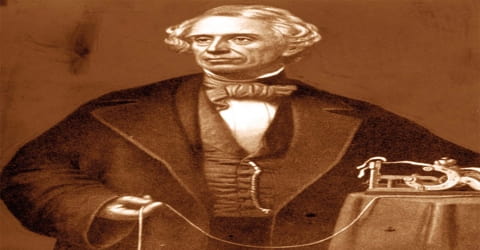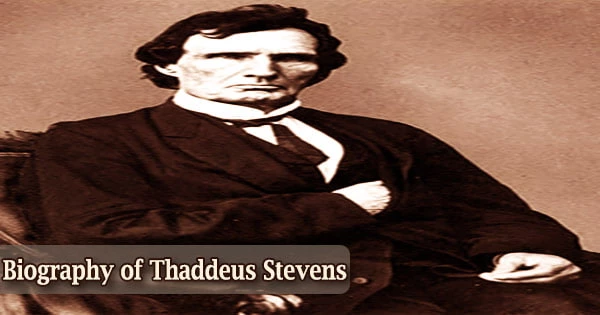Name: Aristotle; was a Greek philosopher and scientist.
Born: 384 BC; Stagira, Chalcidian League, Northern Greece
Died: 322 BC (aged 62); Euboea, Greece, Macedonian Empire
Era: Ancient philosophy
Region: Western philosophy
School: Peripatetic school; Aristotelianism
Main interests: Biology, Zoology, Physics, Metaphysics, Logic, Ethics, Rhetoric, Music, Poetry, Theatre, Politics, Government etc.
Notable ideas: Golden mean; Aristotelian logic; Syllogism; Hexis; Hylomorphism; Theory of the soul etc.
Aristotle was a Greek philosopher and scientist, better known as the teacher of Alexander the Great. He was a student of Plato and is considered an important figure in Western Philosophy. Famous for his writings on physics, metaphysics, poetry, theater, music, logic, rhetoric, linguistics, politics, government, ethics, biology, and zoology, he is considered much ahead of his time. His writings constitute the first comprehensive system of Western philosophy which includes views about morality and aesthetics, logic and science, politics and metaphysics. This system became the supporting pillar of both Islamic and Christian scholastic thought. It is even said that he was perhaps the last man who had the knowledge of all the known fields at that time. His intellectual knowledge ranged from every known field of science and arts of that era. His writing includes work in physics, chemistry, biology, zoology, botany, psychology, political theory, logic, metaphysics, history, literary theory and rhetoric. One of his greatest achievements was formulating a finished system also known as Aristotelian syllogistic. His other significant contribution was towards the development of zoology. It is true that Aristotle’s zoology is now obsolete but his work and contribution was unchallenged till the 19th century. His contribution towards almost all subjects on earth and its influence makes him one of the most famous and top personalities of all time.
Childhood & Early Life
Aristotle was born in Stagira, Chalcidice, which is approximately 55km east of Thessaloniki, in 384 B.C. His father Nicomachus named him Aristole, which means “the best purpose”. His father served as a personal physician to King Amyntas of Macedon.
Aristotle returned to Athens around 335 B.C.E. Under the protection of Antipater (c. 397–c. 319 B.C.E. ), Alexander’s representative in Athens, Aristotle established a philosophical school of his own, the Lyceum, located near a shrine of Apollo Lyceus. Also known as the Peripatetic School, the school took its name from its colonnaded walk (a walk with a series of columns on either side). The lectures were divided into morning and afternoon sessions. The more difficult ones were given in the morning, and the easier and more popular ones were given in the afternoon. Aristotle himself led the school until the death of Alexander in 323 B.C.E. , when he left Athens, fearing for his safety because of his close association with the Macedonians.
Though not much information is available about his childhood, sources throw light on the fact that he spent time in the Macedonian palace and from here he connected with the Macedonian monarchy. Being a physician’s son, he was inspired to his father’s scientific work but didn’t show much interest in medicine. When he turned 18, he shifted to Athens to pursue his education at Plato’s Academy. He left Athens somewhere in 348-347 B.C, spending almost 20 years in the city.
The traditional stories say that he left Athens as he was displeased with the Academy’s direction when Plato’s nephew Speusippus took over the control of the academy after Plato’s death but it is also said that he feared anti-Macedonian sentiments and must have left before the death of Plato.
Thereafter, he moved to the court of his friend Hermias of Atarneus in Asia Minor along with his friend Xenocrates. He then travelled to the island of Lesbos accompanied by Theophrastus where they did in-depth analysis of zoology and botany of the island.
In 343 B.C after the death of Hermias, Philip II of Macedon invited him to become tutor of his son, Alexander.
Career
Aristole became the head of royal academy of Marcedon. Here he became a tutor not only to Alexander but gave lessons to two other future kings – Cassander and Ptolemy – as well. In his role as tutor to Alexander, he encouraged him to conquer east.
In 335 B.C he returned to Athens where he established his own school named Lyceum. For next twelve years he taught various courses at his school.
There came a time when the relationship of Alexander and Aristotle became estranged. This was probably due to Alexander’s relationship with Persia. Though there is little evidence, yet many believed that Aristotle played a role in Alexander’s death.
After Alexander’s death, anti-Macedonian sentiment in Athens flared. In 322 B.C Eurymedon the Hierophant castigated him for not holding the gods in honor and Aristotle fled to Chalcis, his mother’s family estate.
Contributions to Philosophy
Just like his teacher Plato, his philosophy also aims at universe but his ontology finds the universal in particular things, thus his epistemology is based on the study of specific phenomena and it rises to the knowledge of essence.
He also discussed how information can be drawn about objects through deduction and inferences. It was his theory of deduction that was shaped into “Syllogism” by modern philosophers. The pairs of propositions were termed as “Contraries” by him. Syllogism is a logical argument in which the inference of the conclusion is drawn from two or more other premises of a certain form. This was explained by him in his work “Prior Analytics” where he defined the main components of reasoning through exclusive and inclusive relationships. These were in later years shown through Venn Diagrams.
His philosophy not just provided us with a system of reasoning but it was also related to ethics. He had described a “moral code of conduct” what he referred to as “good living” in Nichomachean Ethics.
He also talked about Practical Philosophy where he considered ethics to be a part of practical rather than theoretical study. His work titled “Politics”, threw light on the city. According to him city is a natural community. “Man is by nature a political animal” is what was stated by him.
He has been given credit for being the earliest one to study formal logic. The famous philosopher Kant said in his the Critique of Pure Reason that Aristotle’s theory of logic formed the basis of deductive inference.
Contributions to Science
Though he can’t be termed as a scientist by today’s definition but science was of one of the spheres that he extensively researched and studied especially during his stay at Lyceum. His belief was that interaction with physical objects helps in gaining knowledge.
He also conducted research in biology. He classified animals into species on the basis of blood. Animals with red blood were majorly vertebrates and bloodless were termed as cephalopods. There was relative inaccuracy in this hypothesis yet was regarded as the standard system for many years.
He closely examined marine biology as well. He closely examined the anatomy of marine beings through dissection. It is interesting to note here that unlike his biological classifications, his observations on marine life are quite accurate.
His treatise “Meteorology” provides evidence that he also studied earth sciences. By meteorology, he simply didn’t simply mean the study of weather. It also included extensive study about water cycle, natural disasters, astrological events etc.
Contributions to Psychology
Many scholars consider Aristotle as the true father of psychology, since he is responsible for the theoretical and philosophical framework that contributed to psychology’s earliest beginnings.
His book, De Anima (On the Soul), is also considered as the first book on psychology.
He was concerned with the relation between the psychological processes and the underlying physiological phenomenon.
He suggested that the body and the mind exist as facets of the same being, and the mind is simply one of the body’s functions.
He postulated that intellect consists of two parts: passive intellect and active intellect.
According to him music, epic poetry, comedy, tragedy etc were imitative and varied in imitation by medium, manner or object. His belief was that imitation was a natural part of humans and served as one of the main advantages of mankind over animals.
Major Works
Aristotle wrote around 200 works and most of them were in the form of notes and drafts. These works comprise of dialogues, records of scientific observations and systematic works. These works were looked after by his student Theophrastus and then Neleus
His major works include Rhetoric, Eudemus (On the Soul), on philosophy, on Alexander, on Sophistes, on justice, on wealth, on prayer and on education.
Poetics, Metaphysics, Politics, Physics, De Anima and Nicomachean Ethics are considered to be his most important treatise.
Aristotle’s work “Poetics” comprised of two books – one was on tragedy and the other on comedy.
Death and Legacy
In 322 B.C., just a year after he fled to Chalcis to escape prosecution under charges of impiety, Aristotle contracted a disease of the digestive organs and died. In the century following his passing, his works fell out of use, but were revived during the first century. Over time, they came to lay the foundation of more than seven centuries of philosophy. Solely regarding his influence on philosophy, Aristotle’s work influenced ideas from late antiquity all the way through the Renaissance. Aristotle’s influence on Western thought in the humanities and social sciences is largely considered unparalleled, with the exception of his teacher Plato’s contributions, and Plato’s teacher Socrates before him. The two-millennia-strong academic practice of interpreting and debating Aristotle’s philosophical works continues to endure.
















